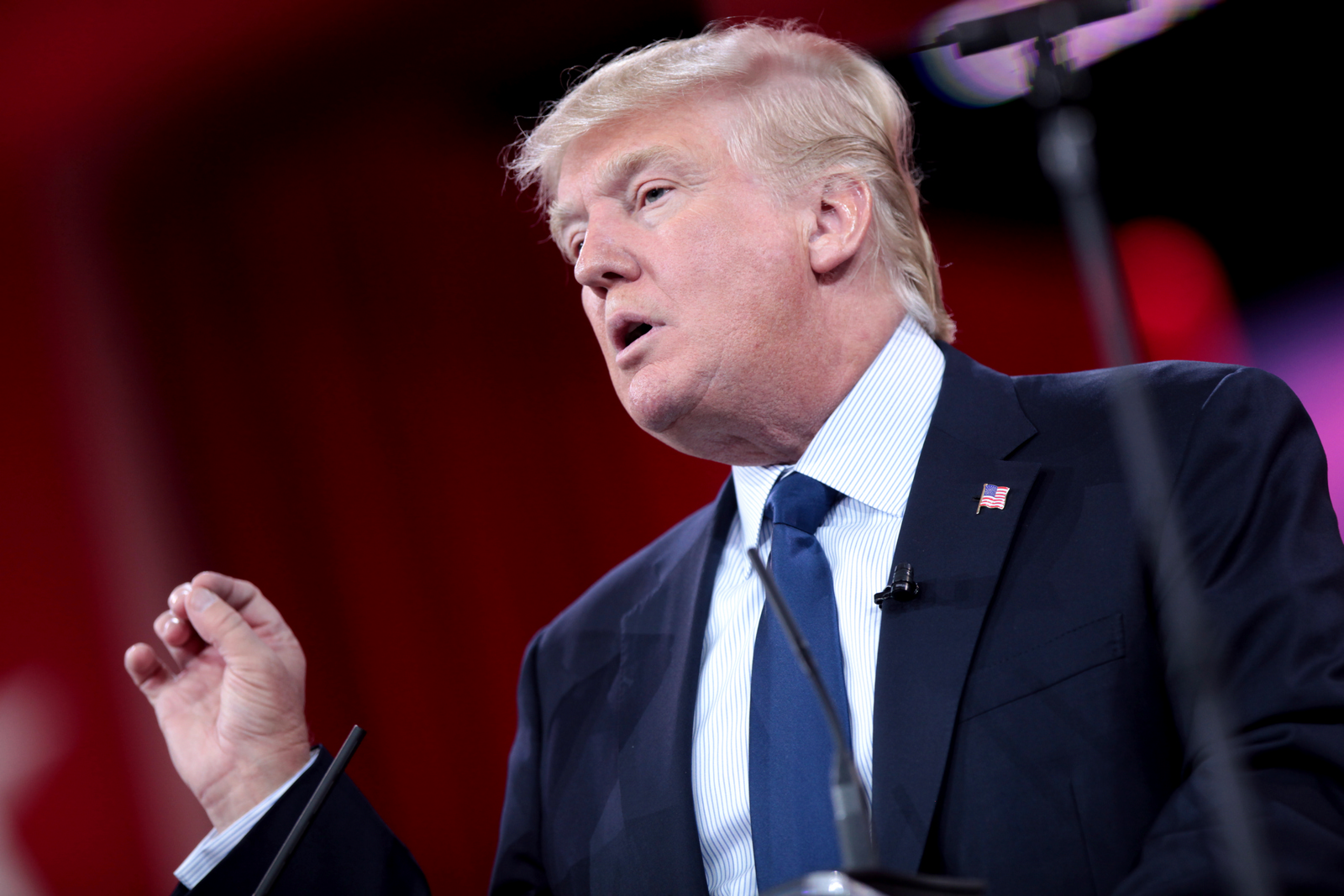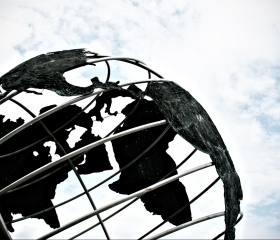Even though Donald Trump has already taken office as the new president of the United States, the contours of his foreign policy, his priorities and relations with allies, have yet to take shape. In Europe, many believe that the change of the U.S. leadership will have serious consequences in the short and medium term. Although there is clearly a window of opportunity in terms of Russia-U.S. relations, the policies of the new president could aggravate issues that have been accumulating within the European security system.
Even though Donald Trump has already taken office as the new president of the United States, the contours of his foreign policy, his priorities and relations with allies, have yet to take shape. In Europe, many believe that the change of the U.S. leadership will have serious consequences in the short and medium term. Although there is clearly a window of opportunity in terms of Russia-U.S. relations, the policies of the new president could aggravate issues that have been accumulating within the European security system.
These are hard times for the Euro-Atlantic system. An asymmetric bipolar system has essentially emerged in the region, with NATO being on one side and Russia on the other. Unlike the Cold War era, there is much more uncertainty in this system. In terms of forces and capabilities, the balance clearly tilts toward NATO. The system is also characterised by inefficient arms control mechanisms and the existence of mutual resentment and claims. This reproduces Richardson’s classical arms race model, in which the buildup of military capabilities is accompanied by low trust level. Even though there appears to be no ideological divide between these two centres of gravity, the ideological gap between them has significantly widened. There is also an imbalance in the competition of ideas. While Russia questions the viability of western models and the assumption that there is no possible alternative, EU countries and the U.S. explicitly and implicitly question the legitimacy of Russia’s political system in general. In this sense, the ideological rift has gone far beyond the confrontation between the west and the USSR.
However, what makes the situation different from the Cold War period is the vulnerability of the Euro-Atlantic system. The west was self-sufficient and impregnable to outside security threats during the Cold War, but this institutional framework is poorly equipped to handle the serious threats it is facing today. NATO and Russia excel in containing each other. However, in the face of the threat of radical Islamism, to take one example, they are struggling to coordinate their actions in the Middle East. The west could lose its balance in the future as Turkey takes on a bigger role and the EU strengthens its political standing. In addition, relations between the two powers have become less predictable, which makes the system even more vulnerable. v
The new U.S. president has already announced a whole set of priorities and measures that will, of course, affect European security and accelerate its transformation. What are these key decisions?
Primarily, the balance of power will change. Donald Trump seems determined to build up U.S. military capabilities both quantitatively and qualitatively. Odds are he will not oppose upgrading nuclear deterrence forces or developing the European missile defence shield. The new U.S. president is determined to assert American interests. And in doing so, he attaches great importance to military power.
Trump’s approach to cooperation with NATO allies will also affect the balance of power in Europe. His restrained attitude toward the alliance raised misgivings within NATO leadership and in some European countries. However, the new president is unlikely to bring about any serious structural changes within NATO. In his critical comments about NATO, Trump talked about the need for European allies to make a bigger financial contribution to common security. In this regard, Trump is acting as a pragmatic businessman, telling the U.S. allies that benefits from a common security system come at a cost. The U.S. will probably succeed in forcing its European partners to increase military spending, and there is economic capacity for doing so despite the challenges some EU countries are facing. This will tilt the strategic balance further toward the West and make the security system even less stable, especially if the Russia-NATO rivalry remains a cornerstone of this system.
The bottom line is that military power will become an increasingly important factor in Russia’s relations with the West, which does not promise any good for European security. It will make it more fragile and vulnerable. However, military power is not the only variable in this equation. A lot will depend on how Moscow’s interpretation of Washington’s power politics. One of the most obvious reactions could be to take a defensive stance and come up with an adequate response even if it does not fully match the steps taken by the U.S. and NATO to increase their military capabilities. This will definitely make the security system more vulnerable since an asymmetric arms race increases the risk of an open confrontation. Strategic stability could be further undermined by the offensive nuclear weapons development, efforts by the U.S. to deploy missile defence systems or pursue space warfare, the lack of cyber-warfare rules and other factors.
That said, this is not the only possibility. Moscow could ignore efforts by the West to build up its military capabilities, while the vulnerability of the Euro-Atlantic region to external threats could become a major factor. In this case, even if Russia and the U.S. do not become allies, at least they will no longer view each other as primary rivals. Two key factors are required for this to happen.
First, the ideological gap between Russia and the U.S. has been narrowing since Trump’s victory. Of course, there is no question of the two countries becoming closer in terms of ideology. However, Trump does not deny Russia’s legitimate interests, and in some cases, these interests coincide with what the U.S. wants. So far, Trump has been portraying Russia as an equal interlocutor, if not a possible partner, saying that there was a need to make deals with Russia to be able to focus on other issues. For Trump, Russia is a “normal” player, no worse or better than other countries. This is what sets the new president apart from Democrats and their Russophobic approaches, as well as the Republicans who view Russia as an absolute evil and deny its right to pursue its legitimate interests. With Barack Obama putting Russia, ISIS and Ebola in the same category, achieving any kind of progress in Russia-U.S. relations became impossible. In this sense, Trump has adopted a radically different approach towards Russia compared to his predecessor.
Second, Russia, despite all its challenges and issues, has enough assets to engage in a dialogue with the U.S. In the current situation, ignoring Russia’s stance could be quite costly. Of course, Moscow can hardly expect Trump to make any concessions since he will probably turn out to be a tough negotiator. However, Russia has things it can put on the table, which means that compromise is quite possible. Moscow has become one of the key actors in resolving the Syrian issue. Russia can also initiate a dialogue on cybersecurity issues, arms control, the situation in Afghanistan, etc. Russia has shown that it can get on well enough even with sanctions imposed. The Kremlin is not facing any emergencies that could force it to make serious concessions, which means that Moscow can engage in calm discussion and negotiate key issues.
All in all, there are several possible scenarios. In the first scenario, the existing security system of containment would remain in place with all its flaws, while making relations between the two parties more predictable. The second scenario would involve a destabilised system of containment. In this case, Moscow will respond to the U.S. and NATO efforts to build up military capabilities, leading to a spiral of fear and an arms race. The third scenario would be to scale back containment policies by gradually or partially overcoming the existing differences. The fourth scenario would be to achieve a qualitatively new partnership in light of common threats. In the fifth scenario, on the contrary, relations would deteriorate, resulting in a new crisis. In the current environment, the best option at the initial stage is to stabilise the containment regime with scaling it back over time.
First published in the Valdai Discussion Club.







